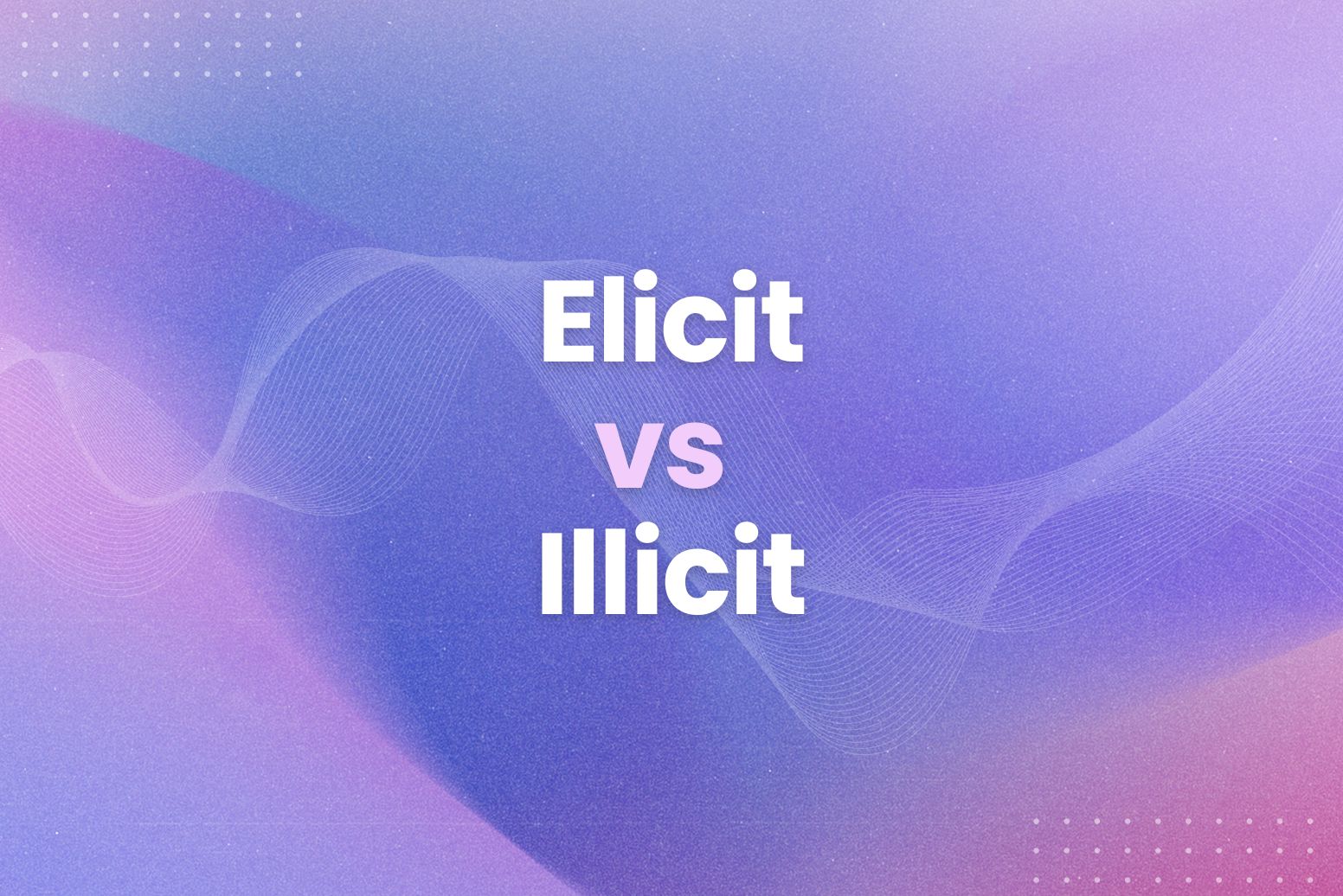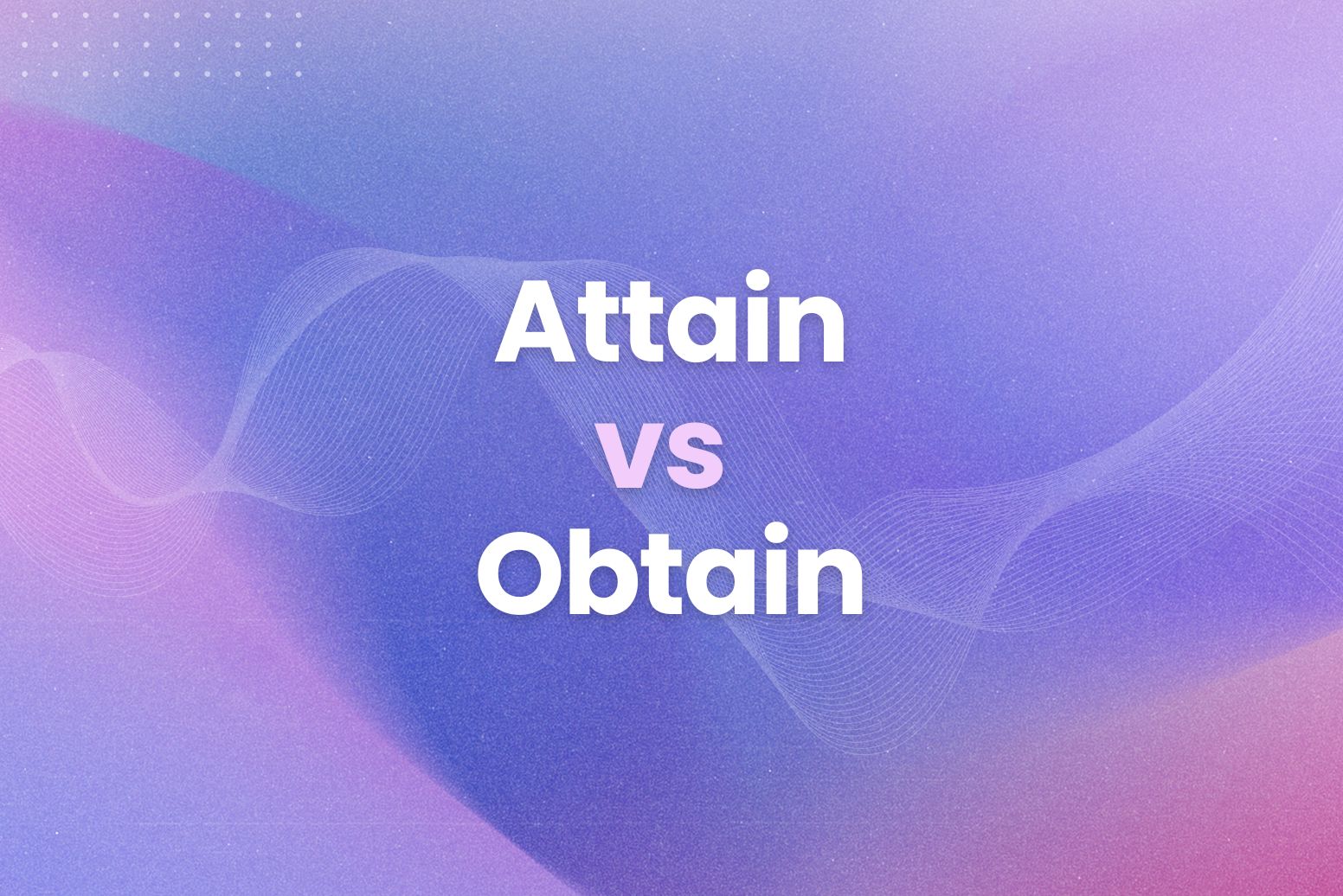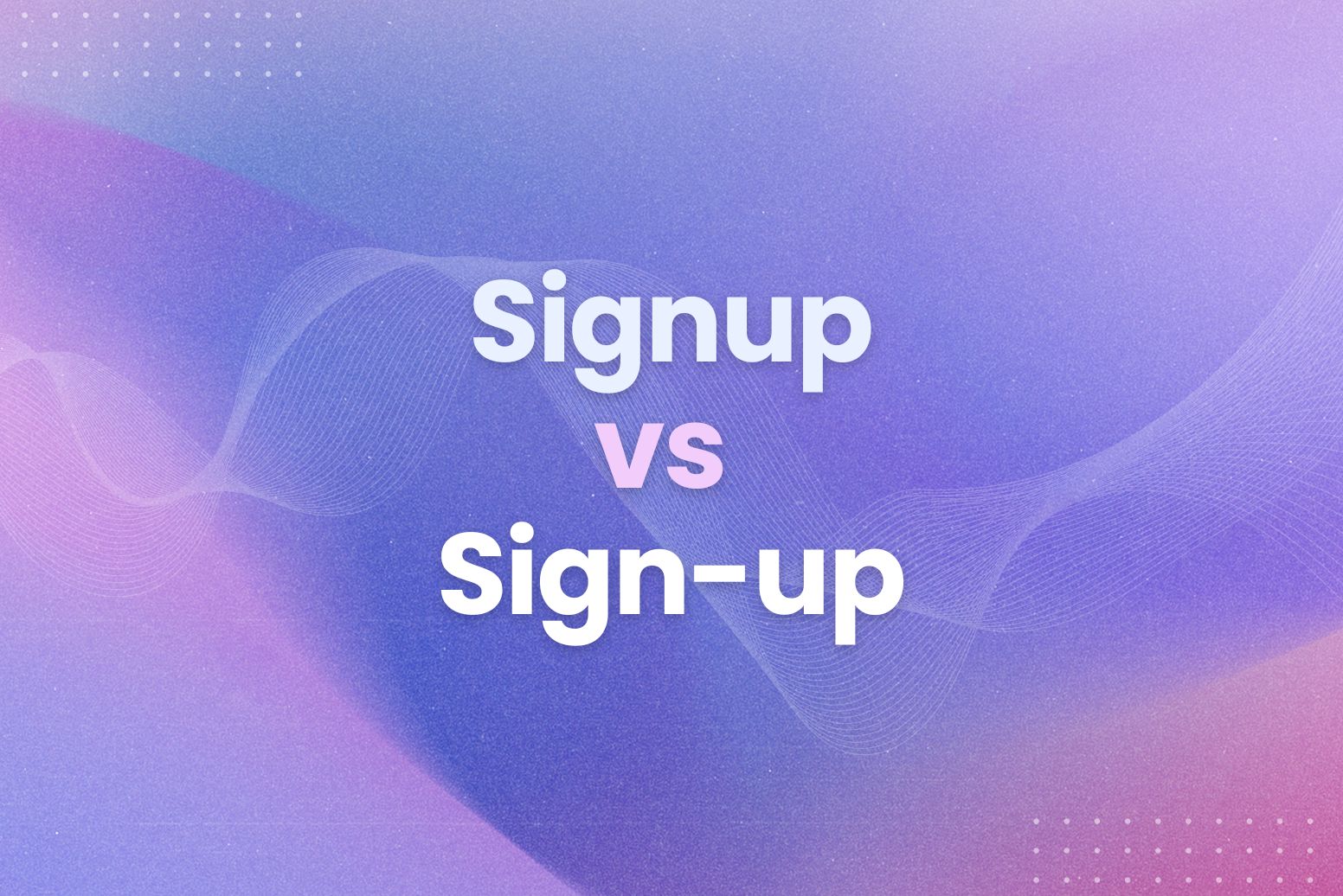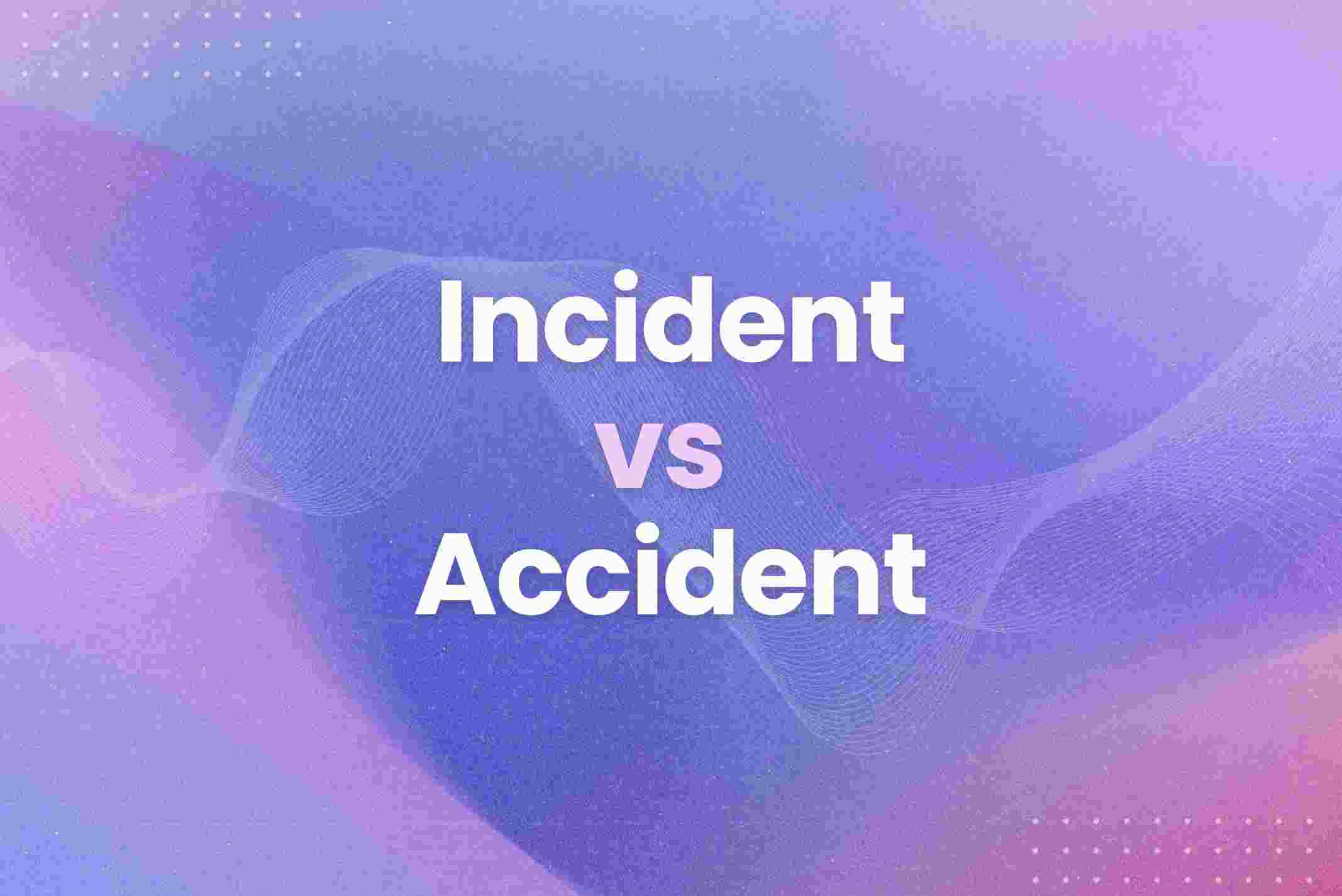The words elicit and illicit are classic examples of homophones—words that sound almost identical but have completely different meanings. It’s no surprise they cause confusion, especially in writing, where many struggle over choosing “elicit” vs “illicit”. Let’s break down these words using Arvin AI’s free Grammar Checker Tool to ensure you never confuse them again.
Plus, we also cover more than just English. We got you on everything.
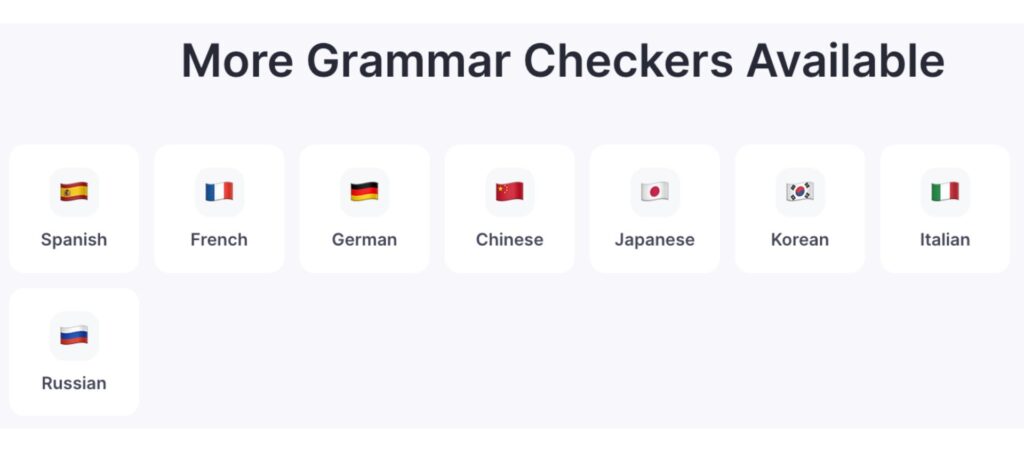
Elicit vs Illicit Meaning
Language is full of words that sound the same but carry entirely different meanings, often leading to confusion. Two such words are elicit and illicit, which are frequently mixed up in both writing and speech.
So, what’s the difference between elicit and illicit, and why is it so easy to confuse them?
What Does Elicit Mean?
Elicit is a verb that means to bring out, provoke, or evoke something, typically a response, emotion, or information. It is often used to intentionally prompt a reaction or gain insight.
Uses of Elicit
1. Gathering Information:
Used when trying to extract details or responses from someone.
In Brooklyn Nine-Nine, Jake Peralta often uses humor and clever questions to elicit confessions from suspects during interrogations.
- “The detective’s laid-back style elicited the truth from the nervous suspect, much like Jake in his hilarious interviews.”
2. Emotional Reactions:
Refers to causing an emotional or physical response.
In The Fault in Our Stars, Hazel’s speech at Augustus’ pre-funeral elicited tears from everyone in the room, as she shared raw, heartfelt emotions.
- “Her speech at the charity event elicited the same kind of tearful reactions you’d expect in a Nicholas Sparks movie.”
3. Creative Inspiration:
Used in discussions about drawing ideas or solutions.
In Shark Tank, entrepreneurs pitch their ideas to elicit excitement and investment offers from the Sharks.
- “The brainstorming session elicited innovative ideas that felt as groundbreaking as the products (like Scrub Daddy) as seen on Shark Tank.“
What Does Illicit Mean?
Illicit is an adjective that often refers to illegal activities, relationships, or substances, but it can also extend to unethical actions that break societal norms.
Uses of Illicit
1. Illegal Activities:
Used to describe something against the law.
In Breaking Bad, Walter White and Jesse Pinkman’s entire empire is built on illicit drug manufacturing and distribution. The show revolves around the dangers and moral dilemmas of engaging in illegal trade.
- “Like Walter White in Breaking Bad, he was arrested for engaging in illicit trade practices that spiraled out of control.”
2. Unethical Relationships:
Refers to affairs or relationships considered morally improper.
In The Great Gatsby, Gatsby and Daisy’s romance could be considered illicit, as Daisy is married to Tom.
- “The novel’s plot revolves around an illicit affair, much like Gatsby and Daisy’s secretive romance in The Great Gatsby.”
3. Contraband or Unauthorized Possessions:
Used to describe substances or items that are prohibited.
In Narcos, the show vividly depicts the smuggling of illicit drugs by Pablo Escobar’s cartel.
- “The border police confiscated the illicit goods, echoing a scene straight out of Narcos where the DEA intercepts drug shipments.”
Key Differences Between Elicit and Illicit
| Aspect | Elicit | Illicit |
| Definition | To draw out, provoke, or evoke a response or reaction. | Something illegal, prohibited, or morally improper. |
| Part of Speech | Verb | Adjective |
| Primary Context | Information gathering, emotional reactions, or inspiration. | Lawbreaking, unethical behavior, or forbidden relationships. |
| Examples | “The teacher’s questions elicited thoughtful answers.” | “He was caught with illicit substances at the checkpoint.” |
Elicitt vs Illicit Grammar
Although elicit and illicit sound identical, their grammatical roles and meanings differ entirely.
If you need help with your grammar, try using our free Grammar Checker.
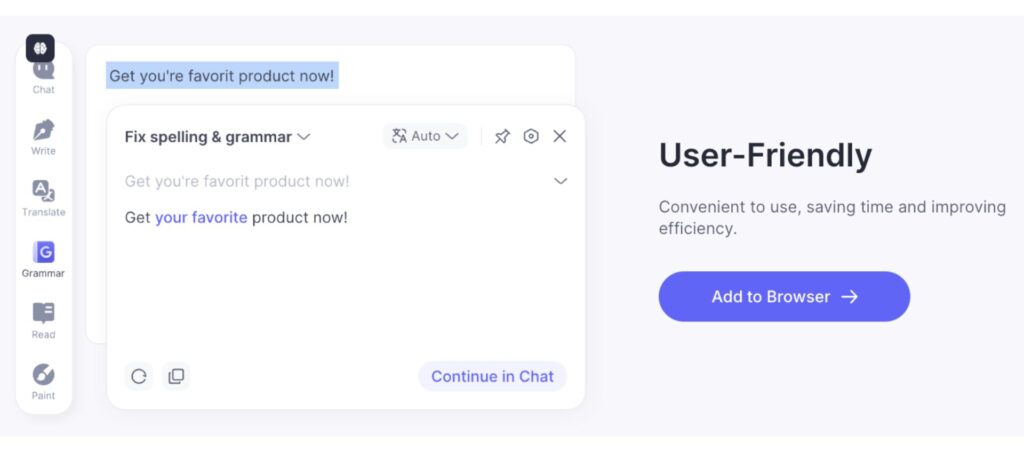
Here’s a breakdown to help you understand how to use each word correctly:
Elicit: Grammar and Usage
1. Part of Speech:
Elicit is a verb.
It represents an action of drawing out or provoking a response, reaction, or information.
2. Tenses and Forms:
- Present: elicit
- Past: elicited
- Continuous: eliciting
3. Sentence Structure:
Typically followed by an object, such as the response, reaction, or information being drawn out.
Example: “The teacher’s somber questions elicited thoughtful answers from the students, unlike their usual selves.”
Common Contexts:
Drawing emotions: “The Barbie movie elicited tears from the audience.”
Extracting information: “The Wendy’s interview was designed to elicit detailed responses from both the guest and audience, albeit being unethical at times.”
Illicit: Grammar and Usage
1. Part of Speech:
Illicit is an adjective.
It describes nouns that are illegal, prohibited, or morally improper.
2. Sentence Placement:
Typically placed before the noun it describes.
Example: “He was arrested for his involvement in illicit activities.”
3. Common Contexts:
Illegal actions: “The police uncovered an illicit drug operation.”
Forbidden relationships: “The novel is about an illicit love affair between two ladies in the 1930s. How sensational!”
Key Grammar Differences between Elicit and Illicit
| Aspect | Elicit (Verb) | Illicit (Adjective) |
| Definition | To draw out a response, reaction, or emotion. | Something illegal, forbidden, or improper. |
| Function in a Sentence | Action word; requires an object (response, reaction). | Descriptive word; modifies a noun. |
| Examples | “The Trump-Harris debate elicited strong opinions.” | “The suspect was involved in illicit trade.” |
Examples of Illicit in Real Life
Illicit affairs and activities remain a staple in pop culture because they tap into universal themes of betrayal, passion, and consequence. They offer audiences, like you and me, an intense mix of drama and moral ambiguity, making them an irresistible distraction of the mundane.
1. Taylor Swift: Illicit Affairs
In Taylor Swift’s song “Illicit Affairs” from her 2020 album folklore, she explores the complexities of secret relationships.
For instance, she sings:
“And clandestine meetings and stolen stares
They show their truth one single time
But they lie and they lie and they lie
A million little times”
These lines capture the essence of hidden relationships and the repeated deceptions that often accompany them.
2. The Matt Gaetz Scandal (2024):
In 2024, U.S. Representative Matt Gaetz faced allegations of engaging in illicit activities, including sexual misconduct and drug use. These accusations led to a federal investigation and significant media scrutiny. Gaetz’s involvement in these alleged activities raised questions about ethical standards and accountability among public officials.
3. Hamilton
The Broadway hit Hamilton includes the story of Alexander Hamilton’s illicit affair with Maria Reynolds.
“I didn’t say no to this / And my God, she looks so helpless.”
This scandal, one of America’s first political sex scandals, is dramatized in the song “Say No to This.”
Examples of Elicit in Real Life
The term “elicit” is often associated with works that provoke strong emotional or intellectual responses from audiences, which usually happens in either controversial pop culture moments or creations ahead of their time.
1. Parasite (2020)
The film masterfully explores the dynamics between two families: the wealthy Parks, who live in luxury and privilege, and the struggling Kims, who reside in a cramped semi-basement apartment. By showcasing the stark contrast in their lifestyles, Parasite elicited global conversations on class disparity and social inequality through its powerful storytelling and layered symbolism.
2. Joker (2019)
Similarly, films like Joker elicited polarizing reactions for its bold depiction of mental health and societal decay, pushing the boundaries of what audiences expect from comic book adaptations.
Common Misuses of Elicit vs Illicit
1. Swapping Roles:
Incorrect: “The officer illicit a confession from the suspect.”
Why: “Illicit” is not a verb.
Correct: “The officer elicited a confession from the suspect.”
2. Misusing Illicit as a Verb:
Incorrect: “The lawyer illicit the truth from the witness.”
Why: “Illicit” cannot perform an action.
Correct: “The lawyer elicited the truth from the witness.”
3. Misusing Elicit as an Adjective:
Incorrect: “He was arrested for elicit activities.”
Why: “Elicit” is not a descriptive word.
Correct: “He was arrested for illicit activities.”
Elicit vs Illicit Synonym
Elicit (Verb)
To draw out, provoke, or bring forth a response, reaction, or information.
Synonyms:
- Evoke
- Extract
- Draw out
- Bring out
- Provoke
- Stimulate
- Trigger
- Prompt
Illicit (Adjective)
Unlawful, forbidden, or morally improper.
Synonyms:
- Illegal
- Unlawful
- Prohibited
- Forbidden
- Contraband
- Taboo
- Unauthorized
- Immoral
What is “Elicit a Response”?
To elicit a response means to draw out or provoke a reaction, answer, or emotion from someone. It’s about prompting something to happen or be revealed.
For example: “The comedian’s joke elicited laughter from the audience.”
What is the Difference Between “Illicit vs Illegal”?
Both illicit and illegal describe something forbidden, but their usage differs slightly:
Illicit: Refers to things that are not just unlawful but also morally improper or socially unacceptable.
- Example: “Their illicit affair caused a scandal in the community.”
Illegal: Strictly relates to the law and anything prohibited by legal statutes.
- Example: “The smuggling of drugs is an illegal activity.”
Quick Tip: All illicit activities are illegal, but not all illegal things are illicit (e.g., jaywalking is illegal but not considered illicit).
What Does It Mean to Elicit Something?
To elicit something means to draw out or provoke a reaction, information, or emotion. It’s an intentional action to get someone or something to respond.
- Example: “The teacher elicited creative ideas from the students during the brainstorming session.”
What Is the Difference Between Elicit vs Illicit vs Solicit?
1. Elicit:
A verb meaning to draw out or provoke.
2. Illicit:
An adjective describing something unlawful or improper.
- Example: “He was arrested for his involvement in illicit trade.”
3. Solicit:
A verb meaning to ask for or seek something, often formally or persistently.
- Example: “The charity solicited donations for disaster relief.”
Quick Tip to Remember: Elicit vs Illicit
Illicit = Description (Adjective): Think of “illegal” or “immoral.”
Elicit = Action (Verb): Think of “evoke” or “extract.”
Final Words
If you ever find yourself unsure about how to use “elicit vs illicit”, or other tricky words, Grammar Checker doesn’t just identify errors—it provides suggestions to improve your grammar, word choice, and sentence structure.
By incorporating tools like this into your workflow, you can confidently tackle even the most challenging language homophones or nuances.
FAQ
Elicit is a verb meaning to provoke or draw out, while illicit is an adjective describing something illegal or improper.
To elicit stuff means to provoke, evoke, or bring out responses, reactions, or ideas through questioning, actions, or influence.
Illegal activities that aren’t illicit include things like jaywalking or parking violations—against the law but not morally improper or socially taboo.
Elicit, to draw out, is a verb. Whereas Illicit, illegal or improper is an adjective. And lastly, solicit, to request or seek, is a verb.
To elicit something means to intentionally draw out a response, emotion, or idea from someone or something.
To elicit a response means to provoke or draw out a reaction or reply.

